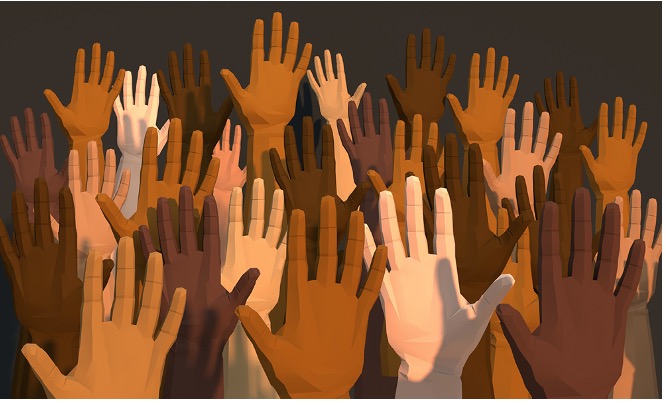CommentsACCORDING TO LIZ - Yesterday was National Pearl Harbor Remembrance Day, a time of figurative rending of garments and reliving one horrible incident – Japanese Zeros dive-bombing the US Naval Base at Pearl Harbor out of the rising sun.
Does celebrating the surprise attack on Naval Station Pearl Harbor near Honolulu and the 2,335 military personnel and 68 civilians killed help people come to terms with loss or stir up more pain and anger?
Or does reliving the trauma of the attack exacerbate Americans’ desire for revenge?
If it is a time for grieving, why not include all the others who have died in modern wars? The 140,000 primarily civilian victims of Hiroshima and the hundreds of thousands of ordinary Iraqis and Afghans whose lives were lost in the United States' bombings in the post-9/11 wars.
What about lives, both in Vietnam and back in the United States, destroyed by Agent Orange?
Celebrating events of destruction tends to stir up more anger, leading to thoughts of revenge and retribution. With such a mindset it is also too easy to justify the horrors of capital punishment.
Small-minded people out for revenge. Small-minded people who also accepted the CIA's detention and torture techniques with, according to a 2014 Washington Post- ABC News poll, 58 percent of Americans agreeing that torture of suspected terrorists were justified “often” or “sometimes.”
So long as it isn’t of them or their families.
Colonial empires as well as fascist and communist powers justified torture to control their political foes, calling them enemies of the state and de facto outside the jurisdiction of non-combatant protections.
At the Nuremberg trials, acts of torture during the Second World War were prosecuted as crimes against humanity. The 1949 Geneva Conventions defined torture as a war crime, and the 1998 Rome Statute of the International Criminal Court specifically called out torture as a crime against humanity if committed as part of a systematic attack on a civilian population.
When lives are immediately at stake in the heat of battle and there is no lawyer to parse the right and wrong of leaning on an enemy combatant, there may be some grey areas. But rendition of foreign nationals, some from third-party countries such as Canada, for physical and mental abuse elsewhere in the world to hide it from us and our own government is beyond the pale in the modern world.
Murder is a crime. So why does the United States continue to execute prisoners, some mentally ill or retarded, some without the wherewithal to pay for an adequate defense, some innocent of the crimes of which they have been convicted?
Justice? Clearly not in any number of cases.
Retribution? Doubtful given only the Lord has the all-seeing eye to know the full truth.
Too often the process which can take decades and for which taxpayers pay more than double the cost of imprisonment without parole, only serves to torment the family and friends of the victims by ripping open wounds before they can heal, and too often culminates in them calling for clemency while the courts and governors spout tough-on-crime memes and call for blood.
Revenge? Whose?
In most cases the victim is dead and those few living don’t want to relive their victimization or bear the guilt of a botched execution.
Talk about torture.
How can a society focused on revenge, one that has lost the ability to extend and receive forgiveness, not risk being crushed by the weight of recrimination and score settling?
’Tis a sad land in which we live.
So why do so many Americans glorify the grisly attack on Pearl Harbor and the atrocities their countrymen endured at the hands of the Japanese when most other countries celebrate the end of war and glorify acts of individual heroism?
Why does the United States commemorate November 11th as a day for veterans not dishonorably discharged while much of the rest of the world celebrate s it as Remembrance Day, when the war ended not only for those who fought and died but for those left behind and for those whose lands were trampled into mud by the to-ing and fro-ing of the battlefront?
And has extended recognition to first responders and all others who have served, and continue to serve during times of war, conflict and peace.
There are more days that should “live in infamy” but a far better practice would be to elevate the celebration of mankind’s positive achievements such as Human Rights Day, observed on December 10th, the day the United Nations General Assembly adopted the Universal Declaration of Human Rights in 1948.
Like the American Declaration of Independence, it sets forth inalienable rights to which every human being is entitled regardless of race, color, religion, sex, language, political or other opinion, national or social origin, property, birth or other status. And the slogan for Human Rights Day this year is “Dignity, Freedom, and Justice for All.”
So much better for our souls to make Human Rights Day a new national holiday as we embrace compassion for everyone, and cultivate universal acceptance of human rights.
(Liz Amsden is a contributor to CityWatch and an activist from Northeast Los Angeles with opinions on much of what goes on in our lives. She has written extensively on the City's budget and services as well as her many other interests and passions. In her real life she works on budgets for film and television where fiction can rarely be as strange as the truth of living in today's world.)






